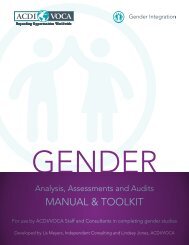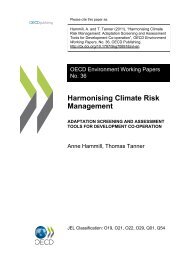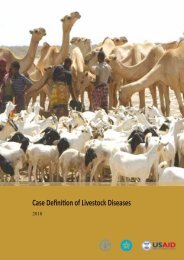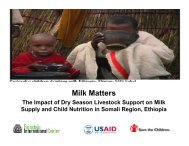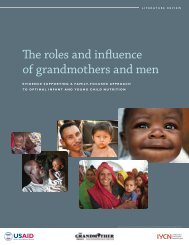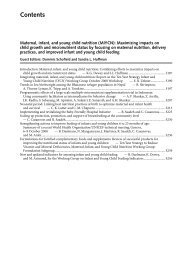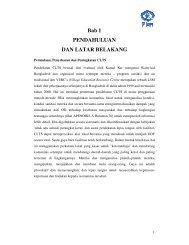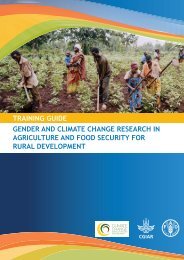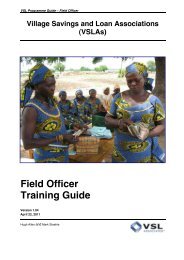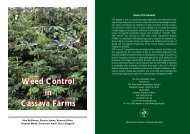WFP Gender Policy - WFP Remote Access Secure Services
WFP Gender Policy - WFP Remote Access Secure Services
WFP Gender Policy - WFP Remote Access Secure Services
- No tags were found...
Create successful ePaper yourself
Turn your PDF publications into a flip-book with our unique Google optimized e-Paper software.
<strong>WFP</strong>’S EXPERIENCEIN MAINSTREAMING GENDERAChiEvEmENts ANd ChAllENGEs12. <strong>WFP</strong>’s past gender policies have resulted inseveral achievements:i) The focus on women and girls has giventhem visibility as beneficiaries andcontributors to household food security. 2ii) Women’s access to food has increasedconsiderably as a result of making womenthe holders of food entitlements.iii) Women’s equal participation in decisionmakingbodies has been promoted byestablishing a 50 percent minimum for theirparticipation in food committees.iv) Girls’ access to education has beenenhanced by extra rations to encourageparents to send girls to school.v) Women now have greater access to trainingthrough food-for-training (FFT) schemes.vi) The collection of sex-disaggregated datahas become routine.13. There are, however, challenges still to beaddressed:i) There is evidence that increasing therepresentation of women in food-relatedbodies does not automatically result inincreased participation in decision making.ii) Issuing ration cards in women’s names doesnot necessarily give them control overhousehold rations because control isdetermined by the capacity to negotiateand decide the use of food. 11iii) A “one-size-fits-all” approach to theiv)Enhanced Commitments to Women (ECW)may have limited field-based innovationand reduced the impetus to carry outgender analysis to adapt programmes totheir context.Limited understanding of gender issuesamong field staff has sometimes led themto perceive gender issues as relating only towomen. 12 More research and improvementsin programme design are necessary.14. Achieving gender balance in staffing remains achallenge, particularly in managerial positions. 2This is addressed in <strong>WFP</strong>’s human resourcestrategy. 13<strong>WFP</strong>-supported school feeding in the mountainareas of Bhutan.11 See <strong>WFP</strong> case studies to assess the implementation of women’s control of food in relief food distributions (ECW IV) and participation in decision-making (ECW V) in Colombia,Indonesia, Kenya, Rwanda, Sierra Leone and Zambia, June–September 2004.12 In a survey in 2007, the gender focal points also identified inadequate funding and capacity and limited practical tools for gender mainstreaming as challenges forimplementing the gender policy.13 “Preparing for Tomorrow Today: Strategy for Managing and Developing Human Resources (2008–2011)” (<strong>WFP</strong>/EB.2/2008/4-C/Corr.1)9



